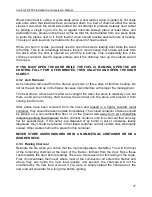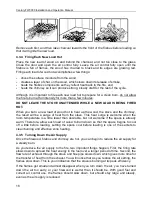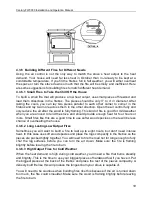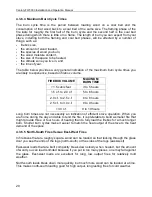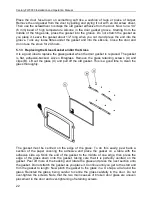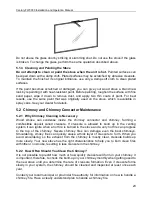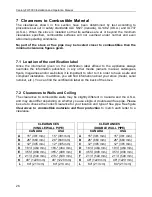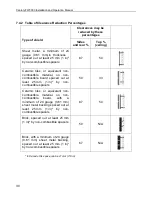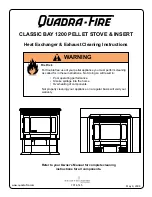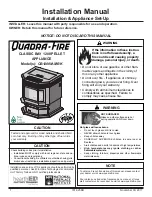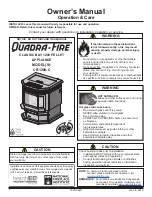
Century FW3000 Installation and Operation Manual
15
4 Operating Your Stove
4.1 Your First Fires
Two things will happen as you burn your first few fires; the paint cures and the internal
components of the stove are conditioned.
As the paint cures, some of the chemicals vaporize. The vapors are not poisonous, but
they do smell bad. Fresh paint fumes can also cause false alarms in smoke detectors. So,
when you first light your stove, be prepared by opening doors and/or windows to ventilate
the house. As you burn hotter and hotter fires, more of the painted surfaces reach the
curing temperature of the paint. The smell of curing paint does not disappear until you
have burned one or two very hot fires.
Burn one or two small fires to begin the curing and conditioning process. Then build bigger
and hotter fires until there is no longer any paint smell from the stove. Once the paint smell
disappears, your stove is ready for serious heating.
4.2 Lighting Fires
Each person who heats with wood develops their own favorite way to light fires. Whatever
method you choose, your goal should be to get a hot fire burning quickly. A fire that starts
fast produces less smoke and deposits less creosote in the chimney. Here are three
popular and effective ways to start wood fires.
4.2.1 Conventional Fire Starting
The conventional way to build a wood fire is to
bunch up 5 to 10 sheets of plain newspaper and
place them in the firebox. Next, place 10 or so
pieces of fine kindling on the newspaper. This
k
indling should be very thin; less than 1” (25
mm). Next, place some larger kindling pieces on
the fine kindling. Open the air control fully and
light the newspaper. If you have a tall, straight
venting system you should be able to close the
door immediately and the fire will ignite. If your
venting system has elbows or an outside
chimney, you may need to leave the door closed
but unlatched for a few minutes as the
newspaper ignites and heat in the chimney
produces some draft. Once the fire has ignited,
close the door and leave the air control fully
open.
A conventional kindling fire with
paper under finely split wood.
DO NOT LEAVE THE STOVE UNATTENDED WHEN THE DOOR IS SLIGHTLY
OPENED DURING IGNITION. ALWAYS CLOSE THE DOOR AFTER IGNITION.
After the kindling fire has mostly burned, you can add standard firewood pieces until you
have a fire of the right size for the conditions.

















